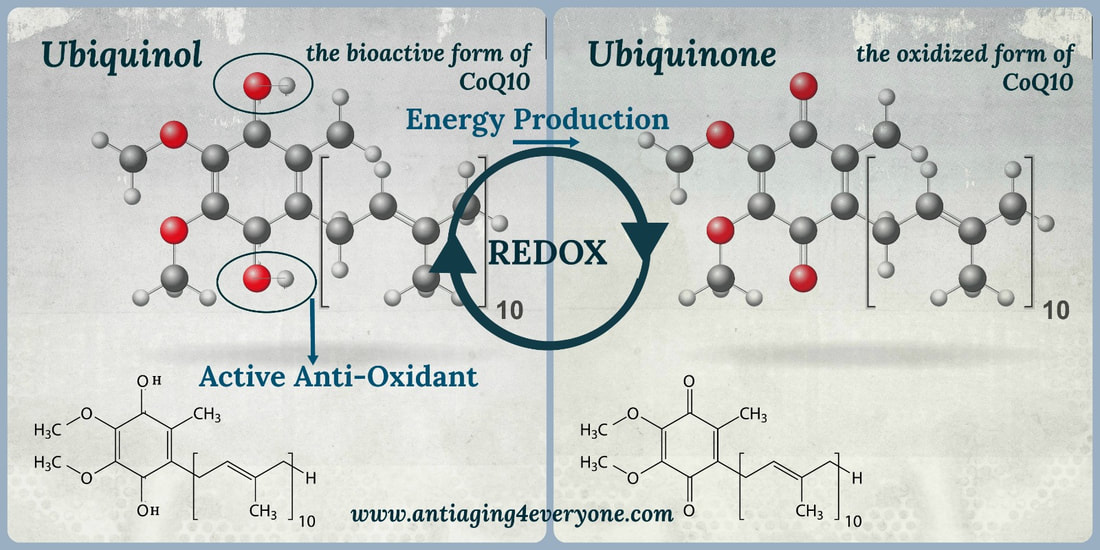Ubiquinol as a support for declining mitochondrial function
The Decline in the Mitochondrial function is one of the known reasons for our aging. Mitochondria is responsible for multiple interlinked functions within our cells, and hence - bodies. When mitochondrial performance declines or when these organelles start malfunctioning, all of their responsibility areas are affected.
Particularly this decline leads to lower energy levels, slower metabolism, decline in the reproductive function in women (through decline in the mitochondrial function of oocytes), decreased innate immune protection, slower rates of senescent cells removal, compromised mechanisms for the calcium levels regulation etc.
So far, several approaches/remedies have been discovered and studied that may help with the improvement in the mitochondria functioning or to compensate for its decline.
Supplementation with Ubiquinol, a reduced or bio-active form of the co-enzyme CoQ10 is one of them.
Particularly this decline leads to lower energy levels, slower metabolism, decline in the reproductive function in women (through decline in the mitochondrial function of oocytes), decreased innate immune protection, slower rates of senescent cells removal, compromised mechanisms for the calcium levels regulation etc.
So far, several approaches/remedies have been discovered and studied that may help with the improvement in the mitochondria functioning or to compensate for its decline.
Supplementation with Ubiquinol, a reduced or bio-active form of the co-enzyme CoQ10 is one of them.
CONTENT
- CoQ10: Ubiquinone and Ubiquinol
- CoQ10 Functions
- CoQ10 - When We are Young and in Aging
- Measurable Results of Supplementing with Ubiquinol and CoQ10
- Form, Dose, Bioavailability, and Interactions
- Ubiquinol in Treatment of Disease
- Natural Ways to Obtain or Increase CoQ10 and Ubiquinol Levels: Food and SunLight
- CoQ10 and Ubiquinol Summary
